Planning worship?
Check out our sister site, ZeteoSearch.org,
for 20+ additional resources related to your search.
- |
User Links
Person Results
St. Bernard of Clairvaux

1090 - 1153 Person Name: Bernard of Clairvaux, 1091-1153 Author of "O Jesus, Joy of Loving Hearts" in Lutheran Book of Worship Bernard of Clairvaux, saint, abbot, and doctor, fills one of the most conspicuous positions in the history of the middle ages. His father, Tecelin, or Tesselin, a knight of great bravery, was the friend and vassal of the Duke of Burgundy. Bernard was born at his father's castle on the eminence of Les Fontaines, near Dijon, in Burgundy, in 1091. He was educated at Chatillon, where he was distinguished for his studious and meditative habits. The world, it would be thought, would have had overpowering attractions for a youth who, like Bernard, had all the advantages that high birth, great personal beauty, graceful manners, and irresistible influence could give, but, strengthened in the resolve by night visions of his mother (who had died in 1105), he chose a life of asceticism, and became a monk. In company with an uncle and two of his brothers, who had been won over by his entreaties, he entered the monastery of Citeaux, the first Cistercian foundation, in 1113. Two years later he was sent forth, at the head of twelve monks, from the rapidly increasing and overcrowded abbey, to found a daughter institution, which in spite of difficulties and privations which would have daunted less determined men, they succeeded in doing, in the Valley of Wormwood, about four miles from the Abbey of La Ferté—itself an earlier swarm from the same parent hive—on the Aube. On the death of Pope Honorius II., in 1130, the Sacred College was rent by factions, one of which elected Gregory of St. Angelo, who took the title of Innocent II., while another elected Peter Leonis, under that of Anacletua II. Innocent fled to France, and the question as to whom the allegiance of the King, Louie VI., and the French bishops was due was left by them for Bernard to decide. At a council held at Etampes, Bernard gave judgment in favour of Innocent. Throwing himself into the question with all the ardour of a vehement partisan, he won over both Henry I., the English king, and Lothair, the German emperor, to support the same cause, and then, in 1133, accompanied Innocent II., who was supported by Lothair and his army, to Italy and to Rome. When Lothair withdrew, Innocent retired to Pisa, and Bernard for awhile to his abbey of Clairvaux. It was not until after the death of Anacletus, the antipope, in January, 1138, and the resignation of his successor, the cardinal-priest Gregory, Victor II., that Innocent II., who had returned to Rome with Bernard, was universally acknowledged Pope, a result to which no one had so greatly contributed as the Abbot of Clairvaux. The influence of the latter now became paramount in the Church, as was proved at the Lateran Council of 1139, the largest council ever collected together, where the decrees in every line displayed the work of his master-hand. After having devoted four years to the service of the Pope, Bernard, early in 1135, returned to Clairvaux. In 1137 he was again at Rome, impetuous and determined as ever, denouncing the election of a Cluniac instead of a Clairvaux monk to the see of Langres in France, and in high controversy in consequence with Peter, the gentle Abbot of Cluny, and the Archbishop of Lyons. The question was settled by the deposition by the Pope of the Cluniac and the elevation of a Clairvaux monk (Godfrey, a kinsman of St. Bernard) into his place. In 1143, Bernard raised an almost similar question as to the election of St. William to the see of York, which was settled much after the same fashion, the deposition, after a time, if only for a time, of William, and the intrusion of another Clairvaux monk, Henry Murdac, or Murduch, into the archiepiccopal see. Meantime between these two dates—in 1140—the condemnation of Peter Abilaid and his tenets, in which matter Bernard appeared personally as prosecutor, took place at a council held at Sens. Abelard, condemned at Sens, appealed to Rome, and, resting awhile on his way thither, at Cluny, where Peter still presided as Abbot, died there in 1142. St. Bernard was next called upon to exercise his unrivalled powers of persuasion in a very different cause. Controversy over, he preached a crusade. The summer of 1146 was spent by him in traversing France to rouse the people to engage in the second crusade; the autumn with a like object in Germany. In both countries the effect of his appearance and eloquence was marvellous, almost miraculous. The population seemed to rise en masse, and take up the cross. In 1147 the expedition started, a vast horde, of which probably not a tenth ever reached Palestine. It proved a complete failure, and a miserable remnant shared the flight of their leaders, the Emperor Conrad, and Louis, King of France, and returned home, defeated and disgraced. The blame was thrown upon Bernard, and his apology for his part in the matter is extant. He was not, however, for long to bear up against reproach; he died in the 63rd year of his age, in 1153, weary of the world and glad to be at rest.
With the works of St. Bernard, the best ed. of which was pub. by Mabillon at Paris in the early part of the 18th cent. (1719), we are not concerned here, except as regards his contributions, few and far between as they are, to the stores of Latin hymnology. There has been so much doubt thrown upon the authorship of the hymns which usually go by his name,—notably by his editor, Mabillon himself,—that it is impossible to claim any of them as having been certainly written by him; but Archbishop Trench, than whom we have no greater modern authority on such a point, is satisfied that the attribution of them all, except the "Cur mundus militat," to St. Bernard is correct. "If he did not write," the Archbishop says, "it is not easy to guess who could have written them; and indeed they bear profoundly the stamp of his mind, being only inferior in beauty to his prose."
The hymns by which St. Bernard is best known as a writer of sacred poetry are: (1.) "Jesu duicis memoria," a long poem on the " Name of Jesus"—known as the "Jubilus of St. Bernard," and among mediaeval writers as the " Rosy Hymn." It is, perhaps, the best specimen of what Neale describes as the "subjective loveliness " of its author's compositions. (2.) "Salve mundi Salutore," an address to the various limbs of Christ on the cross. It consists of 350 lines, 50 lines being addressed to each. (3.) "Laetabundus, exultet fidelis chorus: Alleluia." This sequence was in use all over Europe. (4.) "Cum sit omnis homo foenum." (5.) " Ut jucundas cervus undas." A poem of 68 lines, and well known, is claimed for St. Bernard by Hommey in his Supplementum Patrum, Paris, 1686, p. 165, but on what Archbishop Trench, who quotes it at length, (Sac. Lat. Poetry, p. 242,) deems " grounds entirely insufficient." (6.) " Eheu, Eheu, mundi vita," or " Heu, Heu, mala mundi vita." A poem of nearly 400 lines, is sometimes claimed for St. Bernard, but according to Trench, “on no authority whatever." (7.) “O miranda vanitas." This is included in Mabillon's ed. of St. Bernard's Works. It is also attributed to him by Rambach, vol. i. p. 279. Many other hymns and sequences are attributed to St. Bernard. Trench speaks of a " general ascription to him of any poems of merit belonging to that period whereof the authorship was uncertain." Hymns, translated from, or founded on, St. Bernard's, will be found in almost every hymnal of the day, details of which, together with many others not in common use, will be found under the foregoing Latin first lines.
-John Julian, Dictionary of Hymnology (1907)
See also in:
Hymn Writers of the Church
St. Bernard of Clairvaux
Ludwig van Beethoven

1770 - 1827 Person Name: Ludwig von Beethoven Composer of "HYMN TO JOY" in The Presbyterian Hymnal A giant in the history of music, Ludwig van Beethoven (b. Bonn, Germany, 1770; d. Vienna, Austria, 1827) progressed from early musical promise to worldwide, lasting fame. By the age of fourteen he was an accomplished viola and organ player, but he became famous primarily because of his compositions, including nine symphonies, eleven overtures, thirty piano sonatas, sixteen string quartets, the Mass in C, and the Missa Solemnis. He wrote no music for congregational use, but various arrangers adapted some of his musical themes as hymn tunes; the most famous of these is ODE TO JOY from the Ninth Symphony. Although it would appear that the great calamity of Beethoven's life was his loss of hearing, which turned to total deafness during the last decade of his life, he composed his greatest works during this period.
Bert Polman
Ludwig van Beethoven
John L. Bell
b. 1949 Person Name: John L. Bell (b. 1949) Harmonizer of "LONDONDERRY AIR" in Church Hymnary (4th ed.) John Bell (b. 1949) was born in the Scottish town of Kilmarnock in Ayrshire, intending to be a music teacher when he felt the call to the ministry. But in frustration with his classes, he did volunteer work in a deprived neighborhood in London for a time and also served for two years as an associate pastor at the English Reformed Church in Amsterdam. After graduating he worked for five years as a youth pastor for the Church of Scotland, serving a large region that included about 500 churches. He then took a similar position with the Iona Community, and with his colleague Graham Maule, began to broaden the youth ministry to focus on renewal of the church’s worship. His approach soon turned to composing songs within the identifiable traditions of hymnody that began to address concerns missing from the current Scottish hymnal:
"I discovered that seldom did our hymns represent the plight of poor people to God. There was nothing that dealt with unemployment, nothing that dealt with living in a multicultural society and feeling disenfranchised. There was nothing about child abuse…,that reflected concern for the developing world, nothing that helped see ourselves as brothers and sisters to those who are suffering from poverty or persecution." [from an interview in Reformed Worship (March 1993)]
That concern not only led to writing many songs, but increasingly to introducing them internationally in many conferences, while also gathering songs from around the world. He was convener for the fourth edition of the Church of Scotland’s Church Hymnary (2005), a very different collection from the previous 1973 edition. His books, The Singing Thing and The Singing Thing Too, as well as the many collections of songs and worship resources produced by John Bell—some together with other members of the Iona Community’s “Wild Goose Resource Group,” —are available in North America from GIA Publications.
Emily Brink
John L. Bell
F. E. Belden

1858 - 1945 Composer of "MOUNT OLIVE" in Christ in Song Belden was born in Battle Creek, Michigan in 1858. He began writing music in his late teenage years after moving to California with his family. For health reasons he later moved to Colorado. He returned to Battle Creek with his wife in the early 1880s, and there he became involved in Adventist Church publishing. F. E. Belden wrote many hymn tunes, gospel songs, and related texts in the early years of the Seventh-day Adventist Church. Belden was able to rapidly write both music and poetry together which enabled him to write a song to fit a sermon while it was still being delivered. He also wrote songs for evangelist Billy Sunday. Though Belden’s later years were marred by misunderstandings with the church leadership over his royalties, he did donate his papers and manuscripts to the church’s seminary at his death. He died on December 2, 1945 in Battle Creek, Michigan.
N.N., Hymnary. Source: http://www.hymntime.com/tch/bio/b/e/l/belden_fe.htm
F. E. Belden
Samuel W. Beazley

1873 - 1944 Composer of "[Christ is ready to welcome ev'ry needy heart]" in Hosannas Samuel W. Beazley was born in Sparta, Virginia in 1873. He was a music scholar and taught music at Shenandoah College for five years. He composed over 4,000 gospel songs during his lifetime. Samuel W. Beazley maintained a successful publishing business in Chicago, Illinois. He died in Chicago on September 16, 1944. He was inducted into the Gospel Music Hall of Fame in 1992.
NN, Hymnary editor. Source: www.gmahalloffame.org
Samuel W. Beazley
Jacques Berthier

1923 - 1994 Person Name: Jacques Berthier, b. 1923 Composer of "[Wait for the Lord,his day is near]" in Catholic Book of Worship III Jacques Berthier (b. Auxerre, Burgundy, June 27, 1923; d. June 27, 1994) A son of musical parents, Berthier studied music at the Ecole Cesar Franck in Paris. From 1961 until his death he served as organist at St. Ignace Church, Paris. Although his published works include numerous compositions for organ, voice, and instruments, Berthier is best known as the composer of service music for the Taizé community near Cluny, Burgundy. Influenced by the French liturgist and church musician Joseph Gelineau, Berthier began writing songs for equal voices in 1955 for the services of the then nascent community of twenty brothers at Taizé. As the Taizé community grew, Berthier continued to compose most of the mini-hymns, canons, and various associated instrumental arrangements, which are now universally known as the Taizé repertoire. In the past two decades this repertoire has become widely used in North American church music in both Roman Catholic and Protestant traditions.
Bert Polman
Jacques Berthier
Louis F. Benson

1855 - 1930 Author of "The Sun Is on the Sea and Shore" in Chalice Hymnal Benson, Louis FitzGerald, D.D., was born at Philadelphia, Penn., July 22, 1855, and educated at the University of Penn. He was admitted to the Bar in 1877, and practised until 1884. After a course of theological studies he was ordained by the Presbytery of Philadelphia North, in 1888. His pastorate of the Church of the Redeemer, Germantown, Phila., extended from his ordination in 1888 to 1894, when he resigned and devoted himself to literary and Church work at Philadelphia. He edited the series of Hymnals authorised for use by the General Assembly of the Presbyterian Church in the U.S.A., as follows:—
(1) The Hymnal, Phila., 1895; (2) The Chapel Hymnal, 1898; and (3) The School Hymnal, 1899.
Dr. Benson's hymnological writings are somewhat extensive. They include:—
(1) Hymns and Verses (original and translations), 1897; (2) The Best Church Hymns, 1898; (3) The Best Hymns, 1898; (4) Studies of Familiar Hymns, 1903, &c.
Of his original hymns the following have come into American common use:—
I. In The Hymnal, 1895:—
1. O Christ, Who didst our tasks fulfil. For Schools and Colleges. Written in 1894.
2. O risen Christ, Who from Thy throne. For Installation of a Pastor. Written in 1894.
II. In The School Hymnal, 1899:—
3. A glory lit the wintry sky. Loneliness of Jesus. Written in 1897.
4. Happy town of Salem. Heaven.
5. Now the wintry days are o'er. Easter.
6. O sing a song of Bethlehem. Early Life of Jesus.
7. Open the door to the Saviour. Invitation.
8. Out of the skies, like angel eyes. Lullaby.
9. Who will teach me how to pray? Prayer. In Carey Bonner's Sunday School Hymnary, 1905:—
10. The sun is on the land and sea. Morning.
11. Our wilful hearts have gone astray. Penitence.
12. When I awake from slumber. Morning.
Of the above, Nos. 1-4, 10-12 are from Hymns and Verses, 1897. In the above collection by C. Bonner, Nos. 1, 4, and 6 are also found. Of Dr. Benson's translations from the Latin one only is in common use. See "Plaudite coeli, Rideat aether."
As a hymn writer Dr. Benson is not widely known, mainly through the recent publication of his verse. His hymns deserve attention, and will, no doubt, gain the public ear in due time; whilst his hymnological researches and publications are thorough and praiseworthy.
--John Julian, Dictionary of Hymnology, New Supplement (1907)
Louis F. Benson
Theodore Beck
1929 - 2003 Person Name: Theodore A. Beck, 1929-2003 Arranger of "GAUDEAMUS PARITER" in Lutheran Service Book Theodore Beck taught music theory, composition and organ at Concordia University in Seward. He composed many pieces for organ and church choirs. He died on September 19, 2003 in College Station, Texas.
NN, Hymnary editor. Source: September 22, 2003 edition of the Lincoln Journal Star
Theodore Beck
John Berridge

1716 - 1793 Person Name: Berridge Author of "God's Presence makes Glad" in A Selection of Hymns for Public Worship. In four parts (10th ed.) (Gadsby's Hymns) Berridge, John, born at Kingston, Notis, March 1, 1716, and educated at Clare Hall, Cambridge. In 1749 he was ordained as curate to the parish of Stapleford, near Cambridge, and in 1755 he was preferred to the Vicarage of Everton, where he died Jan. 22, 1793. His epitaph, written by himself for his own tombstone (with date of death filled in), is an epitome of his life. It reads:—
" Here lies the remains of John Berridge, late Vicar of Everton, and an itinerate servant of Jesus Christ, who loved his Master and His work; and after running on His errands for many years, was caught up to wait on Him above. Reader! art thou born again? (No salvation without a new birth.) I was born in sin, February, 1716; remained ignorant of my fallen state till 1730; lived proudly on faith and works for salvation till 1754; was admitted to Everton Vicarage, 1755; fled to Jesus for refuge, 1755; fell asleep in Jesus, January 22,1793."
The first collection of Berridge's hymns was published as A Collection of Divine Songs, 1760. This was subsequently suppressed. In 1785 his Sion's Songs; or, Hymns composed for the use of them that love and follow the Lord Jesus Christ in Sincerity were published. The work contains 342 hymns, some of which had previously appeared in the Gospel Magazine (from 1775 to 1777, 20 in all), under the signature of "Old Everton" and others were adapted from C. Wesley. The most popular of these in modern collections are, "Jesus, cast a look on me;" "O happy saints who dwell in light;” and "Since Jesus freely did appear." Concerning his hymns published in 1785, he says in his Preface:—
“Twelve years ago these hymns were composed in a six months' illness, and have since laid neglected by me, often threatened with the fire, but have escaped that martyrdom."
-- John Julian, Dictionary of Hymnology (1907)
==================
Berridge, John, p. 138, i. The 1842 edition of his Sion's Songs has an elaborate preface by J. C. Philpot, the editor. From this collection the following additional hymns are in common use:—
1. I ask my dying Saviour dear. Sealed by Christ.
2. Lord Jesus, Who didst once appear. Holy Matrimony. An altered form of "Since Jesus freely did appear," p. 1059, i.
3. Soon as faith the Lord can see. None but Jesus.
--John Julian, Dictionary of Hymnology, Appendix, Part II (1907)
John Berridge
John T. Benson

1861 - 1930 Composer of "[Do you know why I’m longing for the coming of the Lord]" in The Joy Bells of Canaan or Burning Bush Songs No. 2 Mr. John T. Benson, Sr. was born on February 19, 1861 in the Edgefield community in east Nashville and was brought up in the Tulip Street Methodist Church where his father was a charter member. John T. and his wife were involved in the founding of an independent holiness church that later became the Church of the Nazarene. Mr. Benson served as minister of music, first in the mission and then in the Church. The Bensons wrote some gospel songs, but their greatest contribution was in the publishing and distribution of song books and hymnals. He founded the John T Benson Publishing Company in Nashville. John Sr. died on June 24, 1930 in Nashville.
NN, Hymnary. Source: http://www.gmahalloffame.org/speaker-lineup/john-t-benson-sr/
John T. Benson
Birdie Bell
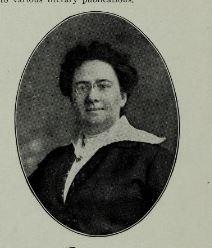
Author of "Jesus Understands!" in The Cyber Hymnal C. Louise Bell, also known a Birdie Bell, was born, raised and lived in New York city. She began writing hymns when she was sixteen years old. She is the author of more than 500 hymns, 200 religious poems, and 200 Christmas and Easter lyrics, as well as short stories, and articles. She wrote under the name of Birdie Bell, which is what her family called her.
Dianne Shapiro, from "The Singers and Their Songs: sketches of living gospel hymn writers" by Charles Hutchinson Gabriel (Chicago: The Rodeheaver Company, 1916)
Birdie Bell
B. B. Beall
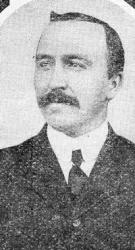
1874 - 1945 Composer of "[How to reach the masses, men of ev'ry birth]" in Yes, Lord! Benjamin Burke (B. B.) Beall, was born on May 25, 1874, Dallas, Georgia. Benjamin graduated in music and elocution from the Texas Musical Institute. He ran the B. B. Beall publishing company in Douglasville, Georgia. He died on October 7, 1945, in Douglasville, Georgia.
Some of his publications:
Bright Beautiful Bells (Birmingham, Alabama: B. B. Beal & Company, 1900)
Gems for the Sunday Schools (Douglasville, Georgia: B. B. Beall & Company, 1902)
Lasting Songs, B. B. Beall et al (Douglasville, Georgia: B. B. Beall & Company, 1910)
NN, Hymnary editor. Source: www.hymntime.com/tch/
B. B. Beall
Darryl Bell
1948 - 2019 Author of "You're Our Strength and Motivation" in Moravian Book of Worship Darryl Bell was born April 23, 1948 in Cass City, Michigan. He graduated from the University of Michigan, attended Wheaton College Graduate School, and received a Masters of Divinity degree from Lutheran Theological Seminary, and Doctor of Ministry from Bethel Theological Seminary. He served pastored churches in Minnesota and Ohio and planted Faith Community Church in Canton, Mich, Christ's Community Church in Maple Grove, Minn., and The Promise Church in Lewis Center, Ohio. He also Interim Church Planter Resource Advisor for the Moravian Church, Northern Province. He was a gentle, caring pastor; loved the outdoors; played, wrote and led music; worked with his hands; and was a life-long learner.
Dianne Shapiro, from obituary Grand Rapids Press, December 8 and 9, 2019
Darryl Bell
Sallie K. Best
1860 - 1951 Author of "Jesus is Coming" in Carols of Hope Mrs. Sallie Lucinda (Keep) Best
Sallie K. Best
Laurence Bévenot
1901 - 1990 Person Name: Laurence Bevenot, OSB Composer (psalm tone) of "[Keep me safe, O God]" in RitualSong
Laurence Bévenot
David J. Becker
1883 - 1959 Person Name: D. J. B. Author of "Jesus Makes Life Worth Living" in O Sing unto the Lord a New Song No. 2 David J. Becker was born April 15 1883 in Sweden. He was a minister in the Evangelical Free Church.
Dianne Shapiro, from Findagrave
David J. Becker
Maurice F. Bell
1862 - 1947 Person Name: Maurice Frederick Bell Translator of "Hail, Glad Festival Day" in Voices United Bell, Maurice Frederick, M.A., son of G. W. Bell, barrister at law, was born in London, Sept. 3, 1862. He graduated from Hertford Coll., Oxford (B.A. 1884, M.A. 1887), was ordained D. 1885, P. 1886, and has been since 1904 Vicar of St. Mark, Regent's Park, London. He contributed to The English Hymnal, 1906, four translations (60, 68, 624, 634), and "O dearest Lord, by all adored" (Close of Festival), 1906. [Rev. James Mearns, M.A.]
--John Julian, Dictionary of Hymnology, New Supplement (1907)
Maurice F. Bell
Adaline Hohf Beery
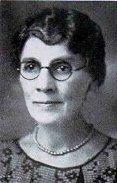
1859 - 1929 Person Name: Adaline H. Beery Author of "Sowing Time" in Pearls of Praise Adaline H. Beery was born on December 20, 1859 in Hanover, Pennsylvania. Adaline’s family moved to Iowa when she was 10 years old. She attended Mount Morris College Academy, Mount Morris, Illinois and for while taught in Iowa public schools. Adaline wrote hundreds of poems, many of which appeared in Brethren periodicals and in the 1897 Poems of a Decade. She died on February 24, 1929, Kane, Illinois.
NN, Hymnary editor. Source: Cyber Hymnal
Adaline Hohf Beery
Jenny Bennett
Arranger of "[Blessed are you when you share the cup of suffering]" in Alleluia Aotearoa
Jenny Bennett
Esther Bertieaux
b. 1944 Person Name: Esther Bertieaux, b. 1944 Translator (stanzas) of "Soul, Adorn Yourself with Gladness (Vengo a ti, Jesús amado)" in Evangelical Lutheran Worship
Esther Bertieaux
J. R. Beveridge
Person Name: J. R. B. Author of "Come Without Delay" in Glad Tidings in Song
J. R. Beveridge
Lucy A. Bennett
1850 - 1927 Author of "Lord and Master We Will Own Him" in Hymns of Consecration and Faith Lucy A. Bennett was born on January 8, 1850 in Green Farm, Falfield, Gloucestershire, England. She was a staunch Methodist and a poet. She began to write poems, hymns and prose at an early age. As a young woman, she attended Keswick Conventions where she met and corresponded with prominent Christian leaders, including Christina Rosseti and C. H. Spurgeon. She was active at Mount Pleasant Chapel where she arranged for ministers, led a Bible Class for women, and visited and helped the poor and needy. She helped to found All Nations College, Upper Norwood and Mount Hermon College, Streatham Common. She died on March 10, 1927
Dianne Shapiro, from Mid-Victorian Poetry, 1860-1879: an annotated biobiliography by Catherine W. Reilly (London: Mansell Publishing Ltd., 2000, and
"A tribute to the life and work of Brian Torode" (btsarnia.org) accessed 9/20/2020
Lucy A. Bennett
A. P. Berggreen
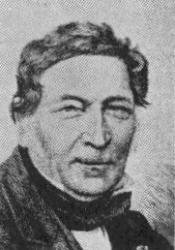
1801 - 1880 Person Name: A. P. Berggren Composer of "[It was a cross, the cruel bed they made Him]" in Hymnal for Church and Home Andreas Peter Berggreen, born in Copenhagen, March 2, 1801. Instrumental and vocal composer; took up music as a profession after having first been compelled to study law, became organist at Trinity Church, Copenhagen, in 1838, professor of vocal music at the Metropolitan School in 1843, and inspector of the same branch in all public institutions. Works: Collection of songs, with guitar (Copenhagen, 1822-1823); Romances (1823); Ballads and Romances (1824); Variations for guitar (1825); Wedding Cantata (1829); Billedet og bustan (The Portrait and the Bust), comic opera given at Copenhagen, 1832; Songs for the use of schools (1834-39); Popular songs and national and foreign melodies, for pianoforte (1842-47); Twelve Swedish songs (1846); National songs (1848); Songs to poems of Bellmann (1850); Six Swedish songs of Runeberg (1852); Several cantatas.
Cyclopedia of Music and Musicians by John Denison Camplin, Jr. and William Foster Apthorp (Charles Scribner’s Sons, 1888)
https://archive.org/details/cyclopediaofmusi01cham/mode/2up
A. P. Berggreen
James F. Belford
Person Name: Jas. F. Belford Author of "Rejoice, Ye Saints of God!" in The Voice of Praise
James F. Belford
Joseph Flintoft Berry
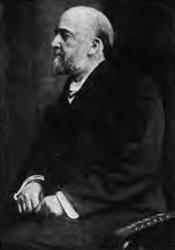
1856 - 1931 Author of "Sweet Voices" in The Cyber Hymnal
Joseph Flintoft Berry
W. H. Belyea
1917 - 2001 Person Name: W. Herbert Belyea Composer (descant) of "PRAISE, MY SOUL" in Voices United
W. H. Belyea


 My Starred Hymns
My Starred Hymns


